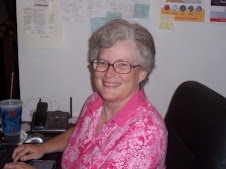I started writing in grade school. Back then they called it “Creative Writing.” I just called it fun. Except every year when the teacher would hand out the same tired worksheet, and we were supposed to fill it out completely and turn it back in for a grade. We were supposed to know everything about our characters, from their name and occupation to what they looked like, thought about and wanted to do with their lives. How was I supposed to know all that about some character I’d just made up? More to the point, why did I need to know all that junk? It seemed like a gigantic waste of time to me. I just wanted to get on with it, to get the story written. Needless to say, I hated having to think about my characters’ backstory, and resisted all attempts at forcing me to do so.
I’ve matured as a writer since then, and now I not only believe in backstory, but I understand its importance. In fact, sometimes I think I might even know too much about a character. I live with my characters for a long time before I commit their story to pen and ink (more like fingers to keyboard these days, but you get my drift). For weeks – or sometimes even months – before I start writing, they “talk” to me. I learn all about their childhood, their hopes, dreams, fears and what they think about. They even fill me in on their shadowy secrets.
By the time I do start to transcribe the stories they share with me, my head is filled with a character’s life. Sometimes it’s hard to filter through everything and decide just how much backstory to use. This is the dilemma I find myself in with my current manuscript, Murder in the Family. The first draft had a second chapter that was far too heavy. I tried to put in everything I knew about Sheriff’s Deputy Dana S. Sinclair’s life. What a mistake that was. After putting the manuscript aside for the difficult but necessary cooling off period, even I was bored with Chapter 2. Yikes!
So how do we decide how much backstory is really necessary for the reader to know in order to advance the story? I spent a lot of time thinking about how the story ended (which for those out there who know me know that even I was surprised by the identity of the killer!) and worked my way back from there. I took large chunks out of the chapter and rifled through them, saving what I thought I might be able to use and discarding the rest. Then I went through the manuscript and inserted a little bit here, a little bit there, until I was satisfied that I’d put in just enough to make the story cohesive without (hopefully) boring the reader with too much unnecessary information. Like how Dana’s brother Phil died, and why she felt responsible. Or the incident with the ice cream and her seventh birthday. Things that may seem unimportant at first glance but ultimately advanced the story.
We want our fans to enjoy themselves, to stay not only with books but with our books. With so many options out there pulling people away from books and reading – the internet, video games, dvds, to name just a few – we want to keep our readers entertained and coming back for more.
And isn’t entertainment the ultimate goal of fiction?
Monday, February 22, 2010
Subscribe to:
Comments (Atom)

